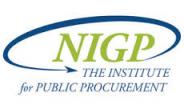Competing cooperative consortiums: Independent association taking shape
Three of the largest cooperative procurement programs for public agencies, educational institutions, and non-profit organizations are forming an independent alliance. In a statement, the alliance creators said the group would “represent excellence in cooperative procurement practices and other interests of the public procurement profession.” The cooperative programs setting up the alliance are the National IPA, NJPA and TCPN.
The alliance casts a wide membership net. The coalition of industry participants “is open to public procurement practitioners, agencies, suppliers, cooperative programs and professional associations that can contribute to its benefit, said the statement announcing the initiative. “The result of this effort will be an independent voice advocating excellence in cooperative purchasing practices and focused on helping you achieve your purchasing objectives as effectively as possible,” the statement explained.
 Andrea M. Scobie, vice president of marketing at Franklin Tenn.-based National IPA, said that the independent alliance wants public procurement practitioners to participate in the group. “We want this group to consist of all facets that cooperative programs touch, so that everyone feels that they have a voice. We felt that it was the right time for this group to be formed. The market is expanding, and cooperative purchasing programs have become a best practice in public procurement.”
Andrea M. Scobie, vice president of marketing at Franklin Tenn.-based National IPA, said that the independent alliance wants public procurement practitioners to participate in the group. “We want this group to consist of all facets that cooperative programs touch, so that everyone feels that they have a voice. We felt that it was the right time for this group to be formed. The market is expanding, and cooperative purchasing programs have become a best practice in public procurement.”
She said that a variety of factors, including the growth of cooperative purchasing, NIGP’s own cooperative purchasing initiatives, potential future legislation and regulations, were all driving the still unnamed group’s formation. “It’s time that we have an independent coalition where we can address those issues,” she explained to GPN.
In a statement, the NIGP said that it “embraces and applauds the coming together of the (unnamed coalition’s) programs in support of sound public procurement practice and a commitment to the profession’s values.” In the statement, NIGP said the institute’s future implementation of the “NIGP Accredited Cooperative” program was a sign of its support of cooperative procurement “as a valuable option for public entities.” The institute will launch the accreditation initiative in early 2015.
NIGP’s statement said that NIGP “anticipates the opportunity to work with each member of this coalition – and the broader community of cooperatives – to affirm that they are effectively providing options that consistently reflect sound public procurement professional practice.” 
U.S. Communities general manager, Kevin Juhring, said, “This appears to be an attempt to pre-empt the NIGP’s accreditation initiative with some sort of industry standard. U.S. Communities remains very supportive of NIGP’s accreditation efforts for cooperatives. The NIGP accreditation will be an invaluable tool for public procurement professionals to quickly identify creditable cooperatives that employ practices that meet or exceed public procurement standards.”
Darin Matthews, who is director of procurement at Portland (Ore.) State University and an NIGP past president, welcomed the announcement of the formation of the new independent alliance. “This type of collaboration can only improve our cooperative procurement practices by better communicating the options available to our profession.”
Public procurement veteran Stephen Gordon said he “will watch with interest and supportive hope to see if this new alliance and others like it will yield the significant benefits of cooperative procurement that exceed better pricing, including the increased sharing of information, ideas and experiences that can support continuously improved strategic results for all.”
Gordon is program director for the Graduate Certificate in Public Procurement and Contract Management at Norfolk, Va.-based Old Dominion University. He formerly managed several public procurement departments including departments in Alexandria, Va., and Nashville and Davidson County, Tenn.
Gordon noted that “The emergence of organizations — profit and not-for-profit — that market the use of aggregated contracts has benefited many state, local, and educational procurement programs and their stakeholders.” He added however, that part of the cooperative purchasing movement has “also has raised political, policy, structural, and resource allocation questions, which to the best of my knowledge, have not been addressed on a broad-scale basis by public procurement professionals, policy makers, or others.”
There may be room for improvement in the performance and/or offierings of cooperative purchasing entities. Government Procurement’s (GP) summer E-survey of public procurement professionals who subscribe to GP showed some respondents had some negative experiences with cooperative purchasing programs’ contracts.
In the survey, GP asked: What are the drawbacks to cooperative programs’ contracts that you have experienced or heard about? The top drawbacks and percent of respondents who experienced them, according to the survey:
Lack of local suppliers, 44.76 percent
Pricing not aggressive enough 41.32 percent
Does not meet competitive solicitation requirements 29.79 percent
Too narrow—not enough choices 22.90 percent
Lack of small, women-owned and/or minority-owned businesses 22.31 percent
Operational/logistical problems 22.16 percent
The GP survey included a total of 731 completed survey responses.
_____________
To get connected and stay up-to-date with similar content from American City & County:
Like us on Facebook
Follow us on Twitter
Watch us on Youtube




















